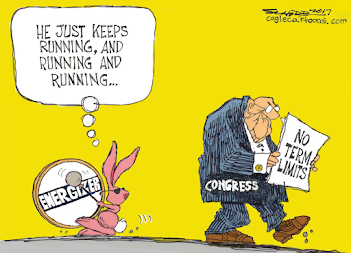Alternative Energy Will Not Save the World: A Book Review of Bright Green Lies
Why are Democrats Obsessed with alternative energy sources? Do they do more harm than good? Will they really save the world?
The idea is that if we were to stop using fossil fuels and slowly switch to an alternative “green” energy source, we can stop climate change and its negative consequences from happening. Sounds great right?
In reality, it sounds too good to be true.
The society that we live in today is a capitalistic society running with the assumption of exponential growth in markets and production. Fundamentally, this system is unsustainable. The earth has a finite amount of resources to extract and manage. The world is not the industry’s oyster. We will realistically run out of resources relatively soon. It is appalling to me that this fact is being debated in a political arena. It is foolish, short-sighted, and greedy to not acknowledge that the world is changing in ways that will make human life incompatible with the planet. The reason that climate change denial is accepted by so many politicians is to serve their own goals. They do it to please the lobbyists of oil and coal companies by not impeding on their profitable business. It is disgusting to me that in the name of re-election and self-preservation, politicians are disagreeing with facts and in return, they are gambling literally the fate of humanity.
In his book Bright Green Lies, Derrick Jensen goes into horrifying detail about how alternative fuels do more harm than good. Each chapter is an in-depth discussion debunking commonly held beliefs about the so-called “benefits” of energy sources. The book presents some very uncomfortable ideas about ourselves as a society. It questions things that are fundamental, such as the development of agriculture and the domestication of animals. Questions like these are ones that I haven’t heard before. I had never heard anyone argue against agriculture being the greatest achievement of humankind. These questions bring up difficult feelings and attitudes. It makes the problem of climate change seem insurmountable to get past. But these feelings are important to face head-on if we want to actually do something about this problem of a quickly changing climate.
The abundance that we have in our lives today has undoubtedly increased the quality of life for billions of people. The advances that we have made in sanitation, health care, transportation, and literacy have improved the human experience in immeasurable ways. But our current “economy” is set up for a planet that does not exist. It assumes we live on a planet that has an infinite supply of water, trees, zinc, oil, mines, everything. This system is bound to fail. Greed is running our civilization into the ground. It will all come crashing down someday soon if we continue to let the people in power value their company's bottom line over the planet that they live on. We are placing more value on a system that we created than on the planet on which we created this system.
Reading this book was a jarring experience for me. At first, I was appalled. I thought the author was off his rocker. The ideas he stated at the beginning of the book were provocative, heavy, and dystopian. But as I kept reading, I realized that the opinions being brought up in this book were so appalling to me because it made me question my choices as a “good environmentalist”, and how these choices may be misguided. The book is incredibly well-researched and presents arguments with dozens of citations to data, research studies, and more. It is clear that the book is meant to be provocative and eye-catching to get the attention of those who believe that we can create technology to fix our climate problem. Once Jensen has our attention, he dives into what the facts of the matter really are, and not just the stats presented on the billboards and ads. Before reading this book, I believed what politicians were saying about alternative energy. I believed that we could develop a better world that was more sustainable and ethical. That we could make a world with all of our modern luxuries that could benefit the people and the planet. I sadly now understand that this is an impossible goal. One cannot fight fire with fire. We cannot fight our technology problem with more technology.
As a party, a nation, and a species, we need to realign our priorities. The oh-so-precious economy will not run if there are no people who can survive on this planet to power it. The health of the planet and its ability to sustain life itself should be held at the highest priority. We know that resources are not infinite. We know so much about our home, yet we do not have the courage to do the right thing and stand up to protect it. The planet will exist with or without us, we need to decide if we want humans to be a part of that story. Solar panels will not save us. We need to think bigger, and we need to change our life of executive abundance before it is too late.
This book is meant to be a wake-up call. It was written to tell people that what we are doing now is not enough if we want to save the planet. It is a call to our lawmakers to create policies to reign in the free market to create a better tomorrow. As voters, it is up to us to support these candidates.
I would highly recommend this book to everyone who calls themselves a member of this planet. It is, at times, a difficult read, but an extremely important one. I hope that this book and others like it will be read by those in office and used to create real change that can save our species from destruction.



Comments
Post a Comment